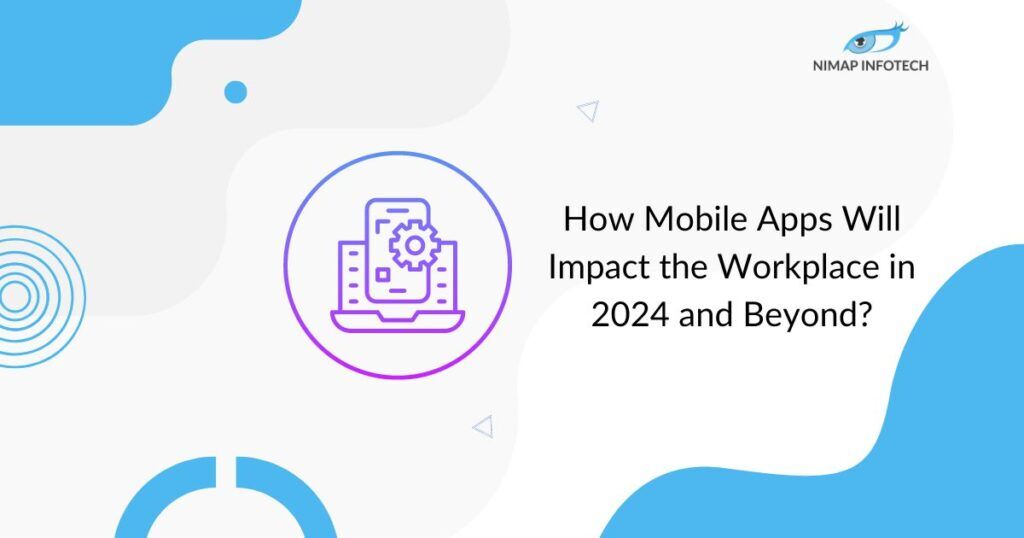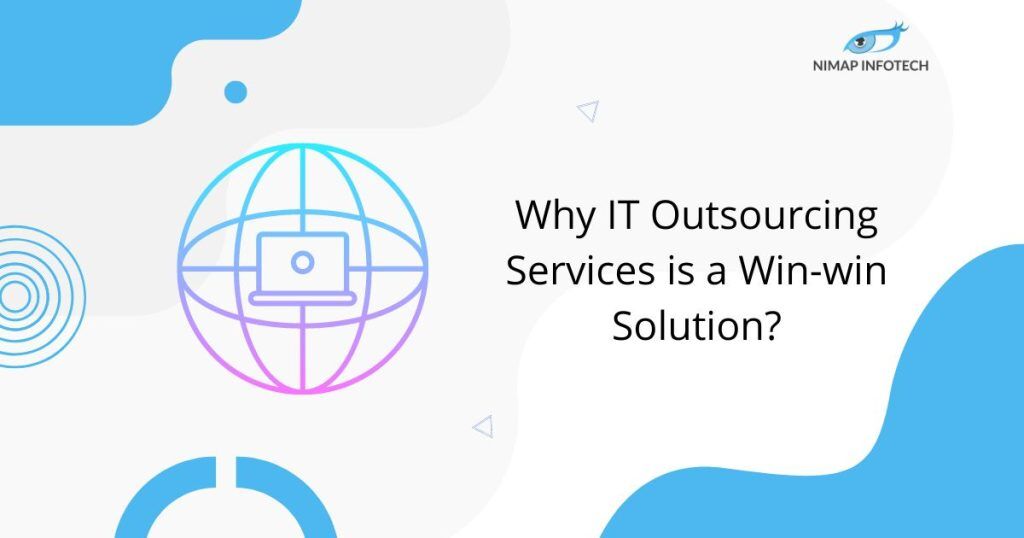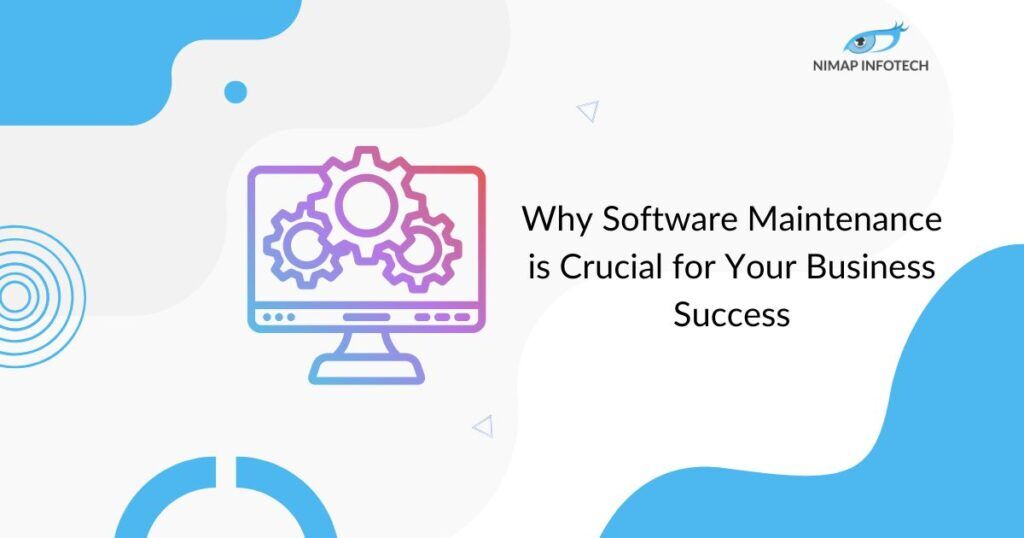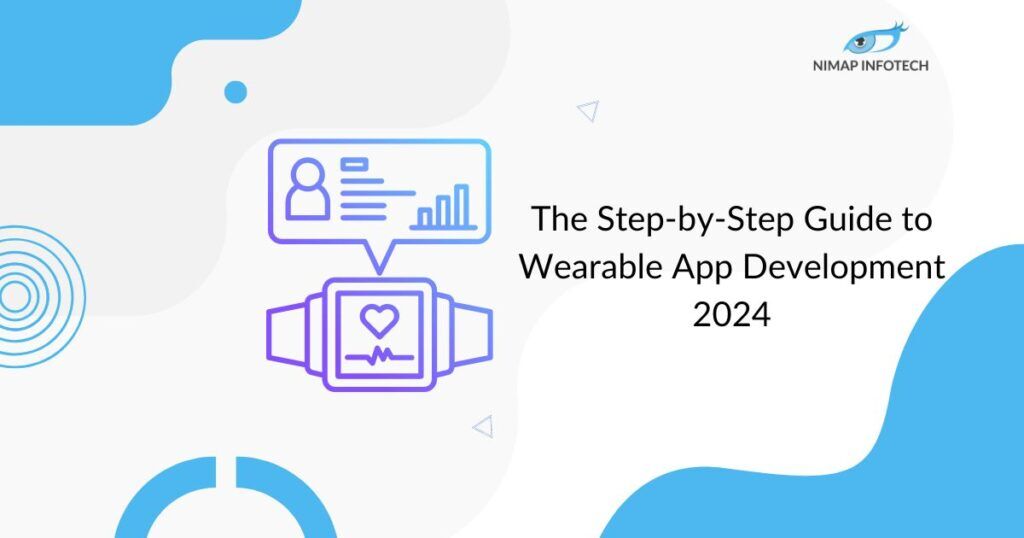Mobile technologies like smartphones have become an indispensable part of our everyday existence. We use these gadgets and different apps for our everyday tasks. Over the past few years, the use of smartphones and mobile apps has been increasing unprecedentedly. This brought several significant advancements and functionalities that made daily tasks and digital interactions simple. The rapid growth of technology, changing user habits, and market demands are all contributing to the remarkable evolution of the mobile app ecosystem. As 2024 progresses, the urgency for app developers to quickly adapt to shifting market conditions becomes more pronounced. This essay examines the most important tactics that mobile apps may use to remain relevant and competitive in this ever-changing landscape.
You need a website to succeed and expand digitally. However, the potential for success is greater with mobile apps. Effective mobile applications significantly impact a brand’s sales, revenue, and success. Developing a new mobile application requires a large and profitable investment from a company. Thus, it’s critical to understand mobile apps’ advantages and value-adding potential thoroughly. What advantages might a mobile app offer a developing company? In this extensive read, we shall explore the benefits of mobile app development for businesses and provide some insider knowledge on how to choose the best mobile app development company to ensure your success. There has been an increase in growth witnessed at the workplace with the adoption of mobile apps.
Table of Contents
ToggleSignificance of Mobile Apps in Modern Business
The increasing demand for mobile apps for businesses is driving up the requirement for high-quality mobile app development services. The applications are specially created software programs that operate on wireless computing devices, such as tablets and smartphones. Convenience is by far the greatest benefit of having a mobile app, among many others. It provides a fast platform for users to engage with a company’s online presence and works well with erratic connections. With 310 million smartphone users, businesses absolutely need dedicated mobile apps. Carefully crafted mobile applications boost brand awareness and provide opportunities for higher sales. In the age of digitalization, the game and the need for mobile apps are crucial to building business brand value, creating awareness, and acquiring dominance in the digital space.
Mobile Apps Help to Facilitate and Smooth Out Customer Engagement
One of the biggest advantages of incorporating mobile apps in business is that it helps businesses acquire a sense of engagement and connection with customers. It is witnessed with some of the tried and tested methods that customer retention gathered with the help of email marketing, messages, and calls provides a subtle, impactful, and personal connection. In contrast, we focus on building brand awareness through calls and customized solutions. We get a quick and interactive response.
If You Are Looking to Increase Brand Visibility and Recognition, Then You Must Have a Mobile App
In today’s business realm, where there are ample ways to increase brand visibility and awareness, one of the finest and most advantageous stands out is the development of mobile apps for your business. Enhancing brand visibility can be achieved through some methods, including search engine optimization, website redesigns, organic marketing, and many more. Yet, it has been shown that mobile apps are the most effective and provide the best return on investment. The creation of mobile apps makes sure that a brand is represented imaginatively online while keeping the expectations of the intended audience in mind. Compared to a website, the app provides a considerably more meaningful and customized experience. It develops trust and strengthens brand recognition by resulting in a distinctive brand experience and visibility.
Key Trends Affecting the 2024 Mobile App Market
There are a few major themes that will shape the mobile app market in 2024 that developers should be aware of:
Excellent Focus on User Privacy and Security Measures:
A greater emphasis is being laid on user security and privacy. Applications that prioritize security and openness are more likely to win over users’ confidence and allegiance.
Rise of Machine Learning and Artificial Intelligence:
With the rise of machine learning and artificial intelligence, the game and importance of mobile apps are changing. These two technologies are revolutionizing mobile app usage by enabling more predictive and personalized features. Applications that make use of these technologies can differentiate themselves from rivals by providing distinctive, customized experiences.
The Sudden Shift Towards Super and Advanced Apps:
When businesses choose to enhance their user experience, they simultaneously look to experience a shift, which encompasses moving from normal-functioning apps to more advanced and super-functioning apps.
Increased Focus on Cross-platform Interoperability:
Consumers need a smooth experience across platforms. Cross-platform compatible apps guarantee steady user interaction irrespective of the device being utilized.
How Can a Mobile App for Employees Change Working Conditions?
Happier workers typically produce better work. While contentment doesn’t always motivate workers to go above and beyond Happier workers typically produce better work. Happiness may not always motivate workers to go above and beyond the call of duty, but there is no doubting the close relationship between happiness, productivity, and collaboration. Your employees’ mobile apps can impact all of these factors.
As they deal with employee engagement, the mobile apps you select for your staff can have a significant influence on how people work at your business. Keep in mind that motivated employees will perform harder, quicker, and more effectively. This means that any mobile app you encourage employees to use (check out our mobile worker app) should increase engagement and decrease dissatisfaction during a typical workday.
The good news is that there are tons of fantastic mobile apps available for workers that help with prioritization, improving attention, streamlining chores, and enhancing communication. It can be not easy to decide between them, so we wrote this essay to explain why less is sometimes more when it comes to tech solutions and how mobile employee apps can increase workplace pleasure.
How Mobile Apps for Employees Can Increase Productivity and Overall Job Satisfaction?
Your company’s specific needs will determine which intranet software apps are best for your staff, but there are a few universal elements that set some employee apps apart. When using technology to increase happiness, you should constantly search for employee mobile apps that boost engagement, enhance productivity, and promote well-being.
What is an Employee Mobile App?
In modern technology, an employee mobile app enables teams and employees of an organization or business to receive and respond to personalized and relevant messages, as there might be some time-sensitive information that needs to be conveyed directly. Workplace conduct is changing, mirroring the trajectory of consumer behavior. Customers now rely heavily on portable electronics. They serve as our life’s dashboard, in a sense. This is now being applied to the experience of employees. Mobile apps impact almost every element of our daily lives. An employee app does nothing but bring that same capacity, simplicity of use, and convenience into our professional lives. It is, after all, comparable to every other program we use.
Discover Many Benefits of Creating an App for Your Employee:
Not every mobile app is made with the goal of becoming more widely downloaded through app stores. Developing a mobile application to facilitate communication between your staff and management or amongst themselves can be beneficial. Developing an employee mobile app can be advantageous for both small and large firms. One of the best ways to address inefficiencies in your human resources (HR) department and future-proof your business operations is with an employee mobile app.
Boost Output and Involvement:
An employee mobile app facilitates your employees’ ability to accomplish simple activities, increasing HR efficiencies. This app allows your personnel to view and edit their profiles. They can now get assistance without having to go to the HR office or call the HR department. Your employees won’t need to phone to request time off for vacation or illness. You can control everything with a smartphone app. It will be simpler for your employees to use an employee mobile app, even if they currently use their phones for work-related purposes. Consequently, it raises staff engagement and productivity daily.
Cut Down on Human Error:
Errors occur when operating a business, frequently unintentionally. Even though certain errors are more serious than others, you must undoubtedly minimize careless behavior. But, your company is more prone to internal errors if the majority of its operations are performed manually by its employees. Since your HR department interacts more with your staff, let’s use it as an example. What procedure do you now follow when employees ask for time off for whatever reason? Some companies accept handwritten requests dropped off at the office, while others ask employees to email the HR department. Using these kinds of protocols allows for human mistakes.
Real-time Information:
One of the primary advantages of an employee smartphone app is the accessibility of real-time information. This crucial component of the workflow process is absent from many firms, particularly for workers who work remotely. For instance, you may have a worker who works remotely while traveling. Instead of returning to the office after the task is over, the employee may update the progress right in the app. Your workflow status and scheduling processes will greatly improve as a result.
Simplified Task Management:
Numerous mobile apps have task management features to assist staff members in maintaining organization, establishing priorities, and keeping track of their responsibilities. By using these tools, you can increase productivity and lower the chance of forgetting deadlines or deliverables. They support deadline setting, to-do list creation, and progress monitoring.
Work-life Balance:
By enhancing time management, mobile apps help employees achieve a better work-life balance. Their access to company resources enables them to accomplish tasks and manage emergencies even when they are not physically present at work during regular business hours. This flexibility may help lower stress and improve general well-being.
Easily Switching Between Desktop and Mobile Devices:
We can have in-person meetings with coworkers via video conferences, and this convenience isn’t just for PC use. These days, the development of mobile apps has advanced to the point where they allow one-touch access to the same meeting from any device. Users can now alternate between the desktop and mobile apps to stay connected while on the road.
How AI Mobile App Development Impacts the Business in 2024?
The practice of utilizing artificial intelligence capabilities to create mobile apps is known as “AI in mobile app development.” It entails designing, coding, conceptualizing, and creating AI- and ML-powered features that aren’t achievable with current or conventional technology. Developers can use AI algorithms to create mobile apps with clever features and useful functionality. Mobile apps with AI capabilities are more capable, able to adjust to various needs and make decisions based on data in real-time.
Understanding the State of AI in Modern Times for Mobile App Development
Modern technology such as artificial intelligence has next-generation features and capabilities. For companies and mobile app developers looking to create cutting-edge apps packed with cutting-edge functionality, it’s a godsend. AI makes it possible for programmers and app development firms to create mobile apps with excellent performance. Currently, businesses and startups utilize AI in the creation of mobile apps to provide smart solutions and improve user experience. From huge companies to small businesses and startups, every business entity is leveraging AI in mobile app development and driving astounding outcomes.
How Does AI Help in Mobile App Development?
Powerful App Authentication:
- Due to the increase in online hackers, mobile apps that don’t have strong security have become easy targets for online fraud. Security algorithms driven by AI can fight this annoyance. Since authentication techniques are based on user behavior and data storage patterns, it is simple to identify criminal activity and notify users in real-time using apps. AI can also improve app security through fingerprint authentication.
Automated Reply Functions:
- The auto reply or smart reply tool is another innovative AI-powered feature actively used by top-performing apps like Google’s Gmail. Selecting from a variety of auto-suggested responses is a convenient feature that not only saves a ton of time but also promotes user communication through the app.
Real-time Translation:
- AI-boosted translators connected with mobile apps, computers, and other devices play a vital role in breaking the language barrier, helping people communicate with others, and carrying out their activities no matter which part of the world they are in. Thanks to real-time translation technology, applications can convert between different languages in real-time with just a button click, even when they are not connected to the internet.
Machine Learning:
- One of the main areas of artificial intelligence is machine learning. It makes it possible for a set of software programs to project outputs in light of gathered data. A machine learning (ML) program gains the ability to learn on its own, which enables it to gather analytics and data for forecasting and producing desired outcomes. As a result, companies now collaborate with machine learning development companies, utilize their services, and maximize the benefits of combining AI and ML.
Exceptionally Tailored User Experience:
- By utilizing AI-driven algorithms to examine user data, developers and designers can comprehend what users want from their in-app experiences and how those needs change over time. As a result, they can create extremely responsive and customized apps that guarantee higher retention and engagement rates.
Emotion Recognition:
- One of the fascinating benefits of integrating artificial intelligence is the ability of mobile app development platforms to recognize and respond to human emotions. By using sophisticated picture processing, audio data interpretation, and vocal intonation, the system can recognize human senses through nuanced facial expressions and speech and offer content—such as movies or music—that best fits the user’s mood at the time.
Data-driven Content:
- The effectiveness of mobile applications is greatly dependent on the content. AI-powered applications carry out intricate analyses on user data, making it easier to provide relevant, approachable content based on reader profiles. Additionally, AI expands the app’s global reach by converting photos and translating content between languages using optical character recognition (OCR).
Increased Revenue:
- Users who are happier with an app are more inclined to buy from it, stick with it as a regular source of information, and tell their friends about it. Mobile apps driven by AI offer the newest features and better performance, greatly improving the user experience. Therefore, the integration of AI is certain to increase app income significantly.
Future of AI in Mobile App Development
The future of AI in mobile app development is promising and significant. AI helps to understand how it redefines how the app interacts with users and improves the overall functionality of the app’s presence. With the onset of AI in mobile app development mobile apps have been becoming increasingly personalised and intuitive. This implies that apps will do more than just carry out user orders; they will also learn from user behavior, make suggestions on their initiative, and automate repetitive chores. AI-powered analytics will enable developers to learn more in-depth details about user behavior. It will make it possible for programmers and AI app development firms to continuously enhance user engagement and optimize app features. Furthermore, AI will be essential in improving app security because of its intelligent features, which can instantly identify and neutralize possible threats.
Artificial intelligence is a super intelligent and transformational technology. It has many sophisticated features and capabilities that enable a system or application to perform at a higher level. AI in mobile app development helps organizations and developers create feature-rich, high-performing mobile apps by solving a variety of issues. As a result, there is a rapidly increasing demand for AI to be integrated into mobile app development. However, since it takes a high level of skill, creating AI-powered apps could be difficult for startups and business owners. Consequently, it makes sense to enlist the aid of a top mobile app development company to assist you in creating an AI-powered mobile app for your business plan.
Invest in Mobile Application Development
Given the increasing popularity of smartphones and the steadily expanding mobile app market, having a working mobile app is essential. The creation of mobile apps is crucial to a developing company’s ability to build a solid foundation for success. These mobile apps increase revenue twofold, draw in more clients, and foster the expansion of businesses. Considering all of the advantages of a mobile app, it is reasonable to say that spending money on high-quality app development is a wise move for the future year.
Author
-

Sagar Nagda is the Founder and Owner of Nimap Infotech, a leading IT outsourcing and project management company specializing in web and mobile app development. With an MBA from Bocconi University, Italy, and a Digital Marketing specialization from UCLA, Sagar blends business acumen with digital expertise. He has organically scaled Nimap Infotech, serving 500+ clients with over 1200 projects delivered.
View all posts







